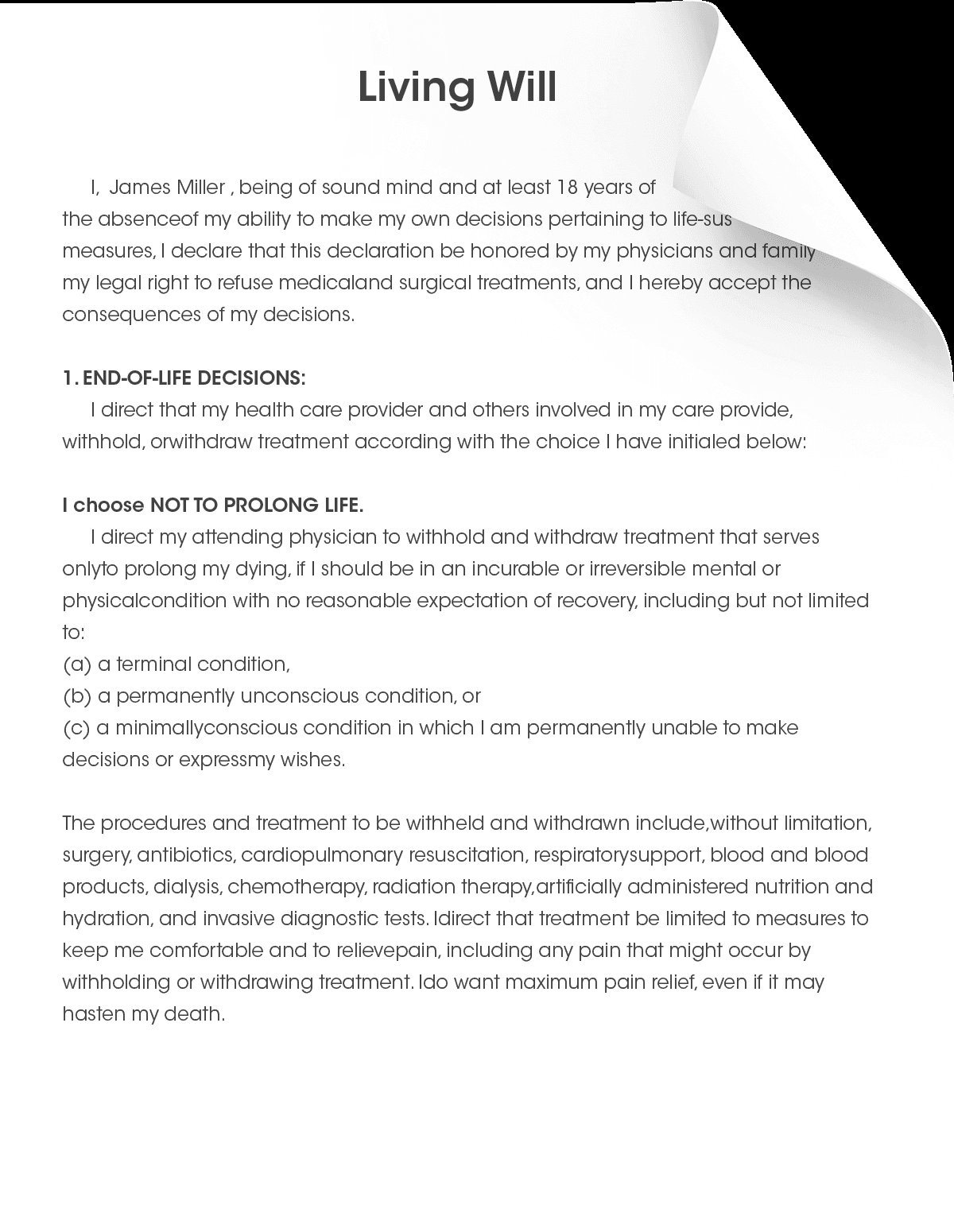Have you ever wondered why and how to create a living will? The answer is simple: it gives you control over your healthcare decisions and provides peace of mind to both you and your loved ones. A living will is a legal document that outlines your preferences for medical treatment in case you become unable to communicate or make decisions for yourself. By taking the time to create a living will, you ensure that your wishes are respected and followed, even when you’re unable to express them. In this article, we’ll explore the importance of creating a living will and guide you through the process step-by-step. Let’s dive in!
Why and How to Create a Living Will
Introduction
In today’s world, it is important to plan for the unexpected. One aspect of this planning involves creating a living will. A living will is a legal document that provides instructions for medical treatment in case you become unable to communicate your wishes. This article will explore the importance of creating a living will and provide a step-by-step guide on how to create one.
Section 1: Understanding the Purpose of a Living Will
A living will serves several important purposes. Here are some key reasons why you should consider creating one:
- Ensuring Your Medical Wishes Are Respected: A living will allows you to outline your preferences for medical treatments, including end-of-life decisions. By clearly documenting your wishes, you can have peace of mind knowing that your preferences will be followed.
- Reducing Family Conflict: In times of medical crisis, family members may face difficult decisions. Having a living will can help alleviate confusion and potential conflicts by providing clear instructions on your medical choices.
- Empowering Yourself: Creating a living will puts you in control of your healthcare decisions. It allows you to express your values and beliefs regarding medical treatments, ensuring that your personal choices are respected.
Section 2: Steps to Create a Living Will
Now that you understand the importance of a living will, let’s delve into the process of creating one. Follow these steps to create your own living will:
Step 1: Research and Understand Local Laws
Before creating a living will, it is vital to research and understand the laws specific to your location. Laws regarding living wills may vary, so make sure you comply with the legal requirements in your jurisdiction. Researching local laws can help you navigate the process smoothly.
Step 2: Determine Your Healthcare Preferences
Take time to reflect on your healthcare preferences and end-of-life decisions. This may involve considering various scenarios and treatments. Think about your beliefs, values, and personal wishes when it comes to medical care. Some aspects to consider include:
- Do you want life-sustaining treatment in all circumstances?
- Are there specific medical interventions you would like to refuse?
- Under what circumstances would you prefer palliative care or hospice?
Step 3: Consult with Loved Ones
While not necessary, it can be beneficial to discuss your healthcare preferences with your loved ones. This can help ensure that they are aware of your wishes and can support your decisions in the future. It may also provide an opportunity for open communication and understanding among family members.
Step 4: Obtain the Necessary Forms
Once you have a clear understanding of your preferences and have consulted with loved ones, it’s time to obtain the necessary forms to create your living will. These forms can typically be found online or obtained from your local government or healthcare providers. Ensure that the forms comply with the legal requirements in your jurisdiction.
Step 5: Fill Out the Living Will Forms
Carefully review the living will forms and fill them out accurately. Take your time to ensure that your preferences are clearly stated and that you have covered all the necessary aspects. It may be helpful to seek legal advice during this step to ensure your living will is valid and enforceable.
Step 6: Sign and Store Your Living Will
After completing the forms, sign your living will in the presence of witnesses as required by law. Make sure to follow the signing instructions provided with the forms. Once signed, store your living will in a safe and accessible place. Inform your loved ones, healthcare providers, and designated agents about the existence and location of your living will.
Section 3: Periodically Review and Update Your Living Will
Creating a living will is not a one-time task. It is essential to review and update your living will periodically to ensure it reflects your current preferences. Life circumstances, medical advancements, and changes in personal beliefs may all influence your healthcare decisions. Set a reminder to review your living will regularly and make any necessary revisions to align with your current wishes.
Section 4: Seek Professional Guidance
While it is possible to create a living will on your own, seeking professional guidance can offer valuable assistance. An attorney specializing in estate planning or elder law can provide legal advice, answer your questions, and ensure your living will is legally sound. Their expertise can help you navigate any complexities and ensure that your wishes are well-documented and legally binding.
Section 5: Conclusion
Creating a living will is a proactive step towards taking control of your healthcare decisions. By clearly expressing your preferences, you can ensure that your medical wishes are respected and reduce potential conflicts among loved ones. Remember to periodically review and update your living will to reflect any changes in your preferences. Seeking professional guidance can also provide peace of mind and help navigate any legal complexities. Start the process of creating your living will today to safeguard your healthcare choices for the future.
How to Write a Living Will
Frequently Asked Questions
Frequently Asked Questions (FAQs)
Why should I create a living will?
Creating a living will allows you to communicate your healthcare preferences and decisions in advance, ensuring that your wishes are respected and followed even if you are unable to communicate them yourself.
How does a living will work?
A living will is a legal document that outlines your preferences for medical treatment in the event that you become incapacitated. It provides instructions to healthcare providers on the types of medical interventions you do or do not want to receive.
Who should create a living will?
Anyone who wants to have control over their medical treatment should create a living will. It is particularly important for individuals with specific healthcare preferences, chronic illnesses, or those who want to alleviate potential burdens on their loved ones.
What should be included in a living will?
A living will should include instructions regarding life-sustaining treatments, resuscitation, organ donation, pain management, and any other specific healthcare preferences. It is crucial to consult with a legal professional to ensure all necessary elements are covered.
How do I create a living will?
To create a living will, you can consult an attorney who specializes in estate planning or use online resources that provide legal templates. It is advisable to involve your healthcare provider and discuss your wishes with your family members to ensure everyone is aware of your decisions.
When should I create a living will?
It is recommended to create a living will as soon as possible, regardless of your age or current health condition. Accidents or unexpected medical situations can occur at any time, and having a living will in place provides peace of mind.
Can I change or update my living will?
Yes, you can change or update your living will any time you want. Life circumstances and preferences may change, so it is important to review and update your living will periodically to ensure it accurately reflects your current wishes.
Who should I share my living will with?
It is essential to share your living will with your healthcare provider, family members, and anyone else involved in your medical care. Make sure they are aware of its existence, know where to locate it, and understand your wishes outlined in the document.
Final Thoughts
Creating a living will is an essential step in ensuring that your healthcare decisions are respected and your wishes are followed when you are no longer able to express them. By clearly outlining your preferences for medical treatment, you can alleviate the burden on your loved ones and provide them with guidance during difficult times. To create a living will, start by discussing your priorities with your loved ones and healthcare provider. Then, put your wishes in writing and consider appointing a healthcare proxy to make decisions on your behalf. Remember, creating a living will is a proactive and responsible action that empowers you to have a say in your own healthcare, even when you are unable to communicate your desires. So, take the time to create a living will – it is an invaluable gift to yourself and your loved ones.



